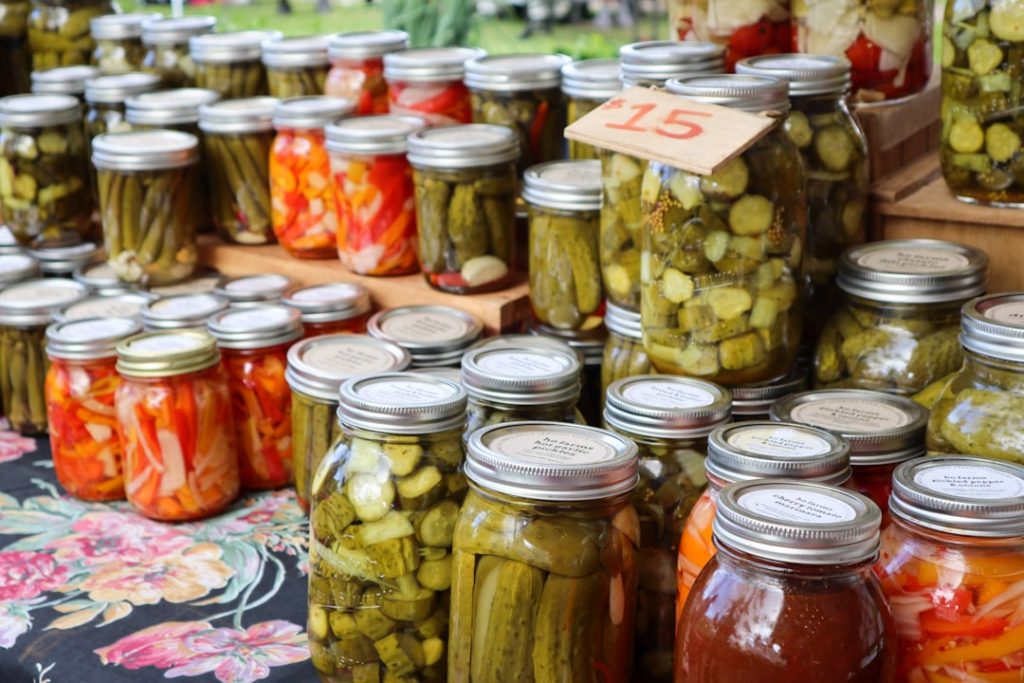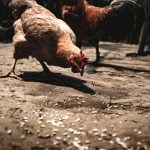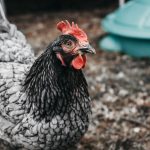Feeding chickens is a critical aspect of poultry husbandry, essential for maintaining the health and productivity of both backyard flocks and commercial operations. Chickens require a balanced diet comprising grains, proteins, vitamins, and minerals to support growth, egg production, and overall well-being. Proper nutrition is fundamental to ensuring optimal flock performance and the production of high-quality eggs or meat.
Effective chicken feeding practices extend beyond simply providing food. They encompass careful planning, appropriate storage methods, and regular monitoring to ensure nutritional adequacy and minimize health risks. This includes implementing proper feed storage techniques, establishing efficient feeding routines, maintaining hygienic feeding areas, preventing feed contamination, and managing leftover food effectively.
By adhering to best practices in chicken feeding, poultry keepers can promote flock health, enhance productivity, and minimize potential issues related to nutrition and feed management. These practices are crucial for both small-scale backyard operations and large commercial poultry farms, contributing to the overall success of poultry raising endeavors.
Table of Contents
- 1 Proper Storage of Chicken Feed
- 2 Tips for Feeding Chickens
- 3 Maintaining Clean Feeding Areas
- 4 Preventing Food Contamination
- 5 Monitoring and Managing Leftover Food
- 6 Conclusion and Summary of Best Practices
- 7 FAQs
- 7.1 What are some tips for keeping food clean when giving it to chickens?
- 7.2 Why is it important to keep food clean when giving it to chickens?
- 7.3 What are some common sources of contamination for chicken food?
- 7.4 How can I prevent contamination of chicken food?
- 7.5 Are there any specific types of feeders that are best for keeping chicken food clean?
Key Takeaways
- Giving food to chickens is an important aspect of raising healthy and productive poultry.
- Proper storage of chicken feed is essential to maintain its freshness and nutritional value.
- Tips for feeding chickens include providing a balanced diet, offering clean water, and avoiding overfeeding.
- Maintaining clean feeding areas is crucial to prevent the spread of diseases and ensure the health of the chickens.
- Preventing food contamination is necessary to safeguard the well-being of the chickens and maintain food safety standards.
- Monitoring and managing leftover food is important to minimize waste and prevent the attraction of pests.
- In conclusion, following best practices for giving food to chickens is essential for their health, productivity, and overall well-being.
Proper Storage of Chicken Feed
Protecting Feed from Moisture and Sunlight
Moisture can cause feed to spoil and mold, which can be harmful to chickens if consumed. Additionally, exposure to sunlight can cause the nutrients in the feed to degrade over time. Therefore, it is best to store feed in airtight containers or bins that are kept in a shaded area.
Inspecting and Maintaining Storage Containers
It is also important to regularly inspect the storage containers for any signs of damage or infestation. Cracks or holes in the containers can allow pests to access the feed, leading to contamination and potential health issues for the chickens. Using metal or plastic containers with tight-fitting lids can help prevent pests from accessing the feed.
Keeping the Storage Area Clean and Pest-Free
Additionally, keeping the storage area clean and free of spilled feed can help deter pests from being attracted to the area. By implementing proper storage practices, you can help ensure that your chicken feed remains fresh and free from contaminants.
Tips for Feeding Chickens

Feeding chickens involves more than just providing them with food; it also requires understanding their nutritional needs and implementing proper feeding practices. Chickens require a balanced diet that includes a mix of grains, protein, vitamins, and minerals to support their growth, egg production, and overall health. A typical chicken diet includes a combination of commercial poultry feed, grains, fruits, vegetables, and occasional treats such as mealworms or kitchen scraps.
When feeding chickens, it is important to provide them with access to clean, fresh water at all times. Water is essential for digestion, nutrient absorption, and overall health. Additionally, chickens should have access to grit, which helps them grind their food in their gizzards for proper digestion.
Grit can be provided in a separate container or scattered on the ground for the chickens to peck at as needed. It is also important to monitor the amount of food given to the chickens to prevent overfeeding or underfeeding. Overfeeding can lead to obesity and health issues, while underfeeding can result in poor growth and reduced egg production.
Providing the right amount of food based on the age, breed, and production stage of the chickens is crucial for their overall well-being. By following these tips for feeding chickens, you can help ensure that your flock receives the nutrients they need to thrive.
Maintaining Clean Feeding Areas
Maintaining clean feeding areas is essential for preventing the spread of disease and ensuring that chickens have access to clean and uncontaminated food. Dirty feeding areas can attract pests and rodents, which can contaminate the feed and pose health risks to the chickens. Additionally, spilled feed can attract flies and other insects, which can carry diseases and parasites that can affect the birds.
To maintain clean feeding areas, it is important to regularly clean and sanitize feeding equipment such as feeders and waterers. Remove any spilled feed or debris from the feeding area to prevent pests from being attracted to the area. Keeping the feeding area dry and well-ventilated can also help prevent mold growth and spoilage of the feed.
By implementing proper cleaning practices and keeping the feeding areas tidy, you can help ensure that your chickens have access to clean and uncontaminated food. In addition to cleaning the feeding areas, it is important to regularly inspect the feeders and waterers for any signs of damage or wear. Cracks or leaks in the equipment can lead to contamination of the feed or water, which can pose health risks to the chickens.
Repair or replace any damaged equipment as needed to maintain a clean and safe feeding environment for your flock.
Preventing Food Contamination
Preventing food contamination is crucial for ensuring that chickens receive clean and safe food that is free from harmful bacteria, mold, or toxins. Contaminated food can pose serious health risks to chickens and can lead to illness or even death. To prevent food contamination, it is important to implement proper storage practices, maintain clean feeding areas, and monitor the quality of the feed.
Proper storage of chicken feed is essential for preventing contamination. Storing feed in a cool, dry place that is protected from pests and rodents can help prevent mold growth and spoilage. Using airtight containers or bins with tight-fitting lids can also help keep out pests and protect the feed from exposure to moisture and sunlight.
Maintaining clean feeding areas is also important for preventing food contamination. Regularly cleaning and sanitizing feeding equipment can help prevent the spread of bacteria and other pathogens. Removing spilled feed and debris from the feeding area can also help deter pests and reduce the risk of contamination.
Monitoring the quality of the feed is another important step in preventing food contamination. Inspect the feed for any signs of mold, discoloration, or unusual odors, as these may indicate spoilage or contamination. If you suspect that the feed may be contaminated, it is best to dispose of it properly and replace it with fresh feed to ensure the health and safety of your flock.
Monitoring and Managing Leftover Food

Preventing Leftover Food from Attracting Pests
To prevent leftover food from attracting pests and becoming contaminated, it is essential to monitor the amount of food given to the chickens and adjust accordingly based on their consumption patterns. Providing just enough food to meet their needs can help minimize waste and reduce the risk of leftover food attracting pests. If there are leftover scraps or treats that have not been consumed by the chickens, it is best to remove them from the feeding area promptly to prevent spoilage and contamination.
Proper Disposal of Leftover Food
Properly disposing of leftover food by composting or disposing of it in a sealed container can help prevent pests from being attracted to the area. Regularly cleaning and sanitizing feeding equipment such as feeders and waterers can also help prevent leftover food from becoming contaminated. Removing spilled feed or debris from the feeding area can help maintain a clean environment and reduce the risk of attracting pests.
Maintaining a Clean Feeding Environment
By monitoring and managing leftover food effectively, you can help prevent waste and maintain a clean feeding environment for your chickens. This not only helps to keep your chickens healthy but also reduces the risk of attracting pests and rodents to the area.
Conclusion and Summary of Best Practices
Feeding chickens involves more than just providing them with food; it requires careful planning, proper storage, and regular monitoring to ensure that they receive clean, safe, and nutritious food. Proper storage of chicken feed is essential for maintaining its quality and preventing contamination. Storing feed in a cool, dry place that is protected from pests and rodents can help prevent spoilage and mold growth.
Feeding chickens also requires understanding their nutritional needs and implementing proper feeding practices. Providing them with access to clean, fresh water at all times, monitoring their food consumption, and offering grit for digestion are important aspects of feeding chickens. Maintaining clean feeding areas is crucial for preventing the spread of disease and ensuring that chickens have access to clean and uncontaminated food.
Regularly cleaning and sanitizing feeding equipment, removing spilled feed or debris from the feeding area, and inspecting equipment for damage are important steps in maintaining clean feeding areas. Preventing food contamination is essential for ensuring that chickens receive clean and safe food that is free from harmful bacteria, mold, or toxins. Proper storage practices, maintaining clean feeding areas, monitoring the quality of the feed, and promptly disposing of leftover food are important steps in preventing food contamination.
Monitoring and managing leftover food is important for preventing waste and maintaining a clean feeding environment for chickens. Monitoring their food consumption patterns, promptly removing leftover scraps or treats from the feeding area, properly disposing of leftover food, and regularly cleaning feeding equipment are important aspects of managing leftover food effectively. By following these best practices for giving food to chickens, you can help ensure that your flock receives clean, safe, and nutritious food that supports their overall health and well-being.
If you’re interested in keeping your chickens healthy and happy, you may also want to read about the importance of maintaining a clean floor in your chicken coop. Check out this article on how to keep the floor of your chicken coop clean to ensure your chickens have a safe and sanitary environment.
FAQs
What are some tips for keeping food clean when giving it to chickens?
Some tips for keeping food clean when giving it to chickens include using a feeder that is elevated off the ground, providing only the amount of food that the chickens will eat in a day, and keeping the feeding area clean and free of debris.
Why is it important to keep food clean when giving it to chickens?
It is important to keep food clean when giving it to chickens to prevent the spread of disease and to ensure that the chickens are receiving a healthy and uncontaminated diet.
What are some common sources of contamination for chicken food?
Common sources of contamination for chicken food include dirt, feces, mold, and other foreign objects that can come into contact with the food.
How can I prevent contamination of chicken food?
You can prevent contamination of chicken food by using clean and dry feeders, storing feed in a dry and secure location, and regularly cleaning the feeding area to remove any debris or waste.
Are there any specific types of feeders that are best for keeping chicken food clean?
Some types of feeders that are best for keeping chicken food clean include hanging feeders, treadle feeders, and PVC pipe feeders. These types of feeders help to keep the food elevated and protected from contamination.
Meet Walter, the feathered-friend fanatic of Florida! Nestled in the sunshine state, Walter struts through life with his feathered companions, clucking his way to happiness. With a coop that’s fancier than a five-star hotel, he’s the Don Juan of the chicken world. When he’s not teaching his hens to do the cha-cha, you’ll find him in a heated debate with his prized rooster, Sir Clucks-a-Lot. Walter’s poultry passion is no yolk; he’s the sunny-side-up guy you never knew you needed in your flock of friends!







